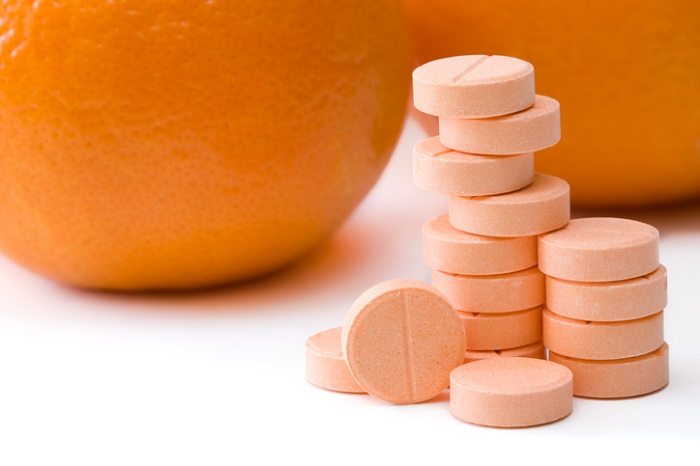Stress is a normal part of life. But when it gets to be too much, stress can alter aspects of your health, including your hormones.
Cortisol is a hormone that is constantly present in your body, but it increases in times of stress. Although cortisol is naturally released when you’re feeling stressed, chronic stress can cause cortisol dysfunction.
Activities like meditation and yoga are often recommended for stress management, but you may also be able to use dietary supplements to lower cortisol and stress. Research shows that certain vitamins, minerals, herbs, and other nutrients may naturally reduce cortisol levels.
Keep reading to learn more about the relationship between stress and cortisol and which supplements may be beneficial.
Cortisol and stress
Cortisol is often referred to as the “stress hormone,” and for good reason.
When you encounter a stressful situation, cortisol is secreted from your adrenal glands that sit on top of your kidneys. This process occurs via the sympathetic nervous system, which is responsible for the fight-or-flight response.
During stress, cortisol provides energy and allows your body to stay alert.
Cortisol also helps your body reduce inflammation, regulate your metabolism, and control your blood pressure. Because of its many jobs, cortisol may increase at various times throughout the day or during certain situations.1
Typically, stress occurs in situations that are unwanted or uncontrollable. This means that cortisol may be released during either physical or emotional stress.2
Not all stress is bad, though. Some stress may even be considered a good thing. However, stress that isn’t properly managed can cause problems, including chronically high levels of cortisol.
What increases cortisol?
For most people, cortisol is always present in their blood. Research shows that cortisol follows its own circadian rhythm, with levels reaching their peak soon after you wake up and slowly falling until you go to sleep.3
Throughout the day, certain factors can stimulate the adrenal glands to release more cortisol into the bloodstream. The best example of this is stress, but other situations can also lead to increased cortisol levels, including:
- Pregnancy
- Exercise
- A serious illness
- Hot and cold temperatures
- Certain thyroid conditions
- Obesity
- Certain medications1
Although cortisol is needed for various bodily processes, it shouldn’t stay elevated for too long. Prolonged stress can cause cortisol levels to remain high, leading to potential health issues.
Conditions such as Cushing’s syndrome or adrenal insufficiency may develop in a person with chronically high cortisol levels. Both conditions can lead to cortisol dysfunction, which can cause additional health conditions.
The good news is that there are things you can do to keep cortisol levels at bay.
Best supplements to lower cortisol

Dietary supplements are just one approach to managing cortisol levels. However, supplements shouldn’t replace standard care and are not a cure-all for high cortisol levels (or other health conditions).
It’s also important to remember that dietary supplements are largely unregulated in the US, and many come with the risk of side effects and other precautions. It’s always best to talk with a healthcare provider before starting a new supplement to make sure it’s safe for you.
There is some evidence that certain vitamins, minerals, herbs, and other nutrients may help reduce cortisol levels. It should be noted, however, that research is still in the early stages for many supplements believed to lower cortisol.
Some of these studies on the best supplements to lower cortisol are outlined below.
1. Omega-3 fatty acids
Omega-3 fatty acids are healthy fats that play many important roles in the body. When it comes to cortisol, some studies have shown that omega-3s may help lower high levels of the stress hormone.
In one such study, adult participants were given either a placebo or varying doses of omega-3 fatty acid supplements for 4 months. At the end of the 4 months, participants were given a stressor test. The results showed that those who took omega-3 fatty acid supplements experienced significant decreases in cortisol levels.4
It’s worth noting that participants who took the larger dose of 2.5 grams (g) of omega-3 fatty acids per day had the best results in the study.
2. Ashwagandha
Ashwagandha is an herb that has shown promise as a natural remedy for high cortisol levels. It is often touted as an adaptogen, which is a substance that is believed to help the body naturally reduce and manage stress.
In various human trials, ashwagandha has been found to reduce cortisol levels in adults with stress.5 6 7 It is believed that ashwagandha may decrease the response of the hypothalamic-pituitary-adrenal (HPA) axis, which is responsible for stimulating the release of cortisol.8
3. Vitamin C

Vitamin C is a powerful antioxidant that plays a role in numerous bodily processes.
According to animal research, vitamin C supplementation may reduce the amount of cortisol released during stress. There is also some evidence that the same effects may occur in humans.9
Vitamin C is believed to have a “braking effect” on the release of cortisol when stress hits. However, more research is needed to fully understand this mechanism as well as how vitamin C may reduce stress in humans.
4. Magnesium
Magnesium is a mineral and electrolyte that is a cofactor in hundreds of enzymatic reactions. Evidence suggests that magnesium may also help lower cortisol levels.
Magnesium has been found to reduce the release of adrenocorticotropic hormone, the hormone that stimulates the release of cortisol.10 A small number of human trials have seemingly confirmed that this may mean that magnesium can reduce cortisol levels.
In one study, stressed male students who took 250 milligrams (mg) of magnesium per day for 4 weeks experienced reduced levels of serum cortisol by the end of the study.10
5. Bacopa monnieri

Bacopa monnieri is a perennial plant and adaptogen that is thought to lower stress as well as cortisol levels.
In one small study, an acute dose of Bacopa monnieri was associated with reduced cortisol levels. Doses of either 320 mg or 640 mg of Bacopa monnieri were found to be beneficial. However, cortisol was only measured shortly after participants took Bacopa monnieri, which means researchers don’t know about the herb’s long-term effects.11
Additional small human trials have found Bacopa monnieri to be beneficial for those with elevated cortisol, but large-scale studies should be conducted to strengthen these results.
6. Chamomile
Chamomile is an herb commonly used to boost relaxation and sleep. It is also thought to reduce anxiety and stress, which may be worsened by high cortisol levels.
The results of one study showed that chamomile improved the natural decline of cortisol levels throughout the day in people with generalized anxiety disorder (GAD). Interestingly, people with GAD who used chamomile had higher cortisol levels in the morning compared to those who used a placebo. According to researchers, however, elevated morning cortisol is normal and allows for a steadier decrease of the hormone up until bedtime.12
7. Probiotics

Probiotics may do more than just support digestion. Research shows that these good bacteria may also reduce cortisol levels.13
In one study, the use of probiotic supplements was linked to less depressive symptoms in adult patients. Compared to a placebo, probiotic supplement use was also associated with reduced urinary cortisol levels. These results were deemed clinically significant, but not statistically significant.14
Other ways to manage cortisol and stress
Supplements aren’t the only option when it comes to lowering your high cortisol levels. You can take action now to change your lifestyle and naturally reduce cortisol.
Because high cortisol levels are associated with stress, the first step is to learn how to recognize and manage stress in your life.
You can do this by becoming aware of what stresses you out. When you know what typically causes stress, you may find it helpful to do some planning to make the situation feel easier.
Sometimes, however, stress is inevitable. This may be especially true if you have kids or a demanding job. To manage stress in these situations, it may be helpful to make lists and decide which tasks to tackle first.
Other ideas for managing stress include:
- Preparing for stressful events (like travel or a busy day)
- Practicing self-care and taking time to relax
- Finding reasonable solutions to your problems
- Talking to friends and family15
Your overall lifestyle is critical to both your stress and cortisol levels.
Evidence shows that a well-balanced diet and regular physical activity are important to healthy cortisol levels. However, excessive exercise can increase cortisol levels, so don’t go overboard.16
Other lifestyle factors are important for stress and cortisol as well. To reduce cortisol levels, it’s also recommended that you:
- Get enough sleep
- Maintain healthy relationships
- Participate in activities you enjoy (like hobbies)
- Connect with others
- Get outside
- Ask for help when you need it17
Last but most importantly, remember that you don’t have to learn how to deal with stress on your own. A qualified healthcare professional can help you find ways to reduce stress and cortisol levels in ways that don’t add more stress to your life.
Key takeaways
Cortisol is a hormone that is important to several aspects of your health. However, if it stays too high for too long, problems can arise.
Fortunately, most people can find ways to reduce cortisol levels on their own. Common treatments include lifestyle changes and dietary supplements to lower cortisol.
Research shows that some dietary supplements may help lower cortisol levels, but more research is needed in many areas. Remember that supplements work best when used along with other measures to reduce cortisol.
Talk with a healthcare provider if you’re worried about high cortisol levels and want to know more about what you can do now.
 About Brittany Lubeck
About Brittany Lubeck
Brittany Lubeck is a registered dietitian and nutrition writer. She has a Bachelor of Science in Dietetics, a Master of Science in Clinical Nutrition, and began her career as a clinical dietitian. Brittany has always enjoyed research and loves that she can help people learn more about nutrition through her writing.
Sources:
1. “Cortisol Test.” National Library of Medicine. Medlineplus.gov.
2. Cay, M., C. Ucar, et al. “Effect of increase in cortisol level due to stress in healthy young individuals on dynamic and static balance scores.” Northern Clinics of Istanbul 4, no. 5 (2018): 295-301.
3. Mohd Azmi, N.A.S., N. Juliana, et al. “Cortisol on Circadian Rhythm and Its Effect on Cardiovascular System.” International Journal of Environmental Research and Public Health 2, no. 18 (2021): 676.
4. Madison, A.A., M.A. Belury, et al. “Omega-3 Supplementation and Stress Reactivity of Cellular Aging Biomarkers: An Ancillary Substudy of a Randomized, Controlled Trial in Midlife Adults.” Molecular Psychiatry 7, no. 26 (2021): 3034-3042.
5. Salve, J., S. Pate, et al. “Adaptogenic and Anxiolytic Effects of Ashwagandha Root Extract in Healthy Adults: A Double-blind, Randomized, Placebo-controlled Clinical Study.” Cureus 12, no. 11 (2019): e6466.
6. Lopresti, A.L., S.J. Smith, et al. “An investigation into the stress-relieving and pharmacological actions of an ashwagandha (Withania somnifera) extract.” Medicine 37, no. 98 (2019): e17186.
7. Remenapp, A., K. Coyle, et al. “Efficacy of Withania somnifera supplementation on adult’s cognition and mood.” Journal of Ayurveda and Integrative Medicine 2, no. 13 (2022): 100510.
8. Mikulska, P., M. Malinowska, et al. “Ashwagandha (Withania somnifera) – Current Research on the Health-Promoting Activities: A Narrative Review.” Pharmaceutics 4, no. 15 (2023): 1057.
9. Moritz, B., A.E. Schmitz, et al. “The role of vitamin C in stress-related disorders.” The Journal of Nutritional Biochemistry no. 85 (2020): 108459.
10. Pickering, G., A. Mazur, et al. “Magnesium Status and Stress: The Vicious Circle Concept Revisited.” Nutrients 12, no. 12 (2020): 3672.
11. Benson, S., L.A. Downey, et al. “An acute, double-blind, placebo-controlled cross-over study of 320 mg and 640 mg doses of Bacopa monnieri (CDRI 08) on multitasking stress reactivity and mood.” Phytotherapy Research 4, no. 28 (2014): 551-9.
12. Keefe, J.R., W. Guo, et al. “An Exploratory Study of Salivary Cortisol Changes During Chamomile Extract Therapy of Moderate to Severe Generalized Anxiety Disorder.” Journal of Psychiatric Research no. 96 (2018): 189-195.
13. Jun, J., A. Kasumova, et al. “Probiotic supplements and stress-related occupational health outcomes: A scoping review.” Journal of Occupational Health 1, no. 65 (2023): e12404.
14. Kazemi, A., A.A. Noorbala, et al. “Effect of prebiotic and probiotic supplementation on circulating pro-inflammatory cytokines and urinary cortisol levels in patients with major depressive disorder: A double-blind, placebo-controlled randomized clinical trial.” Journal of Functional Foods no. 52 (2019): 596-602.
15. “Manage Stress.” Office of Disease Prevention and Health Promotion. Health.gov.
16. Soltani, H., N.L. Keim, K.D. Laugero. “Increasing Dietary Carbohydrate as Part of a Healthy Whole Food Diet Intervention Dampens Eight Week Changes in Salivary Cortisol and Cortisol Responsiveness.” Nutrients 11, no. 11 (2019): 2563.
17. “11 healthy ways to handle life’s stressors.” The American Psychological Association. APA.org.
The post 7 Best Supplements to Lower Cortisol appeared first on ZYTO.